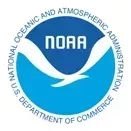 The Caribbean Regional Lionfish Workshop was held at the Radisson Hotel Hacienda in Cancun, Mexico from August 25 to 27. The workshop was organized and funded by the National Commission for Protected Areas (CONANP), Mexico, the Reef Environmental Education Foundation (REEF), U.S., and the National Oceanic and Atmospheric Administration (NOAA), U.S., and the government of France (ICRI Co-Secretariat). The workshop was chaired by Ricardo Gomez Lozano, director, Arrecifes de Cozumel National Park.
The Caribbean Regional Lionfish Workshop was held at the Radisson Hotel Hacienda in Cancun, Mexico from August 25 to 27. The workshop was organized and funded by the National Commission for Protected Areas (CONANP), Mexico, the Reef Environmental Education Foundation (REEF), U.S., and the National Oceanic and Atmospheric Administration (NOAA), U.S., and the government of France (ICRI Co-Secretariat). The workshop was chaired by Ricardo Gomez Lozano, director, Arrecifes de Cozumel National Park.
Objectives:
The objectives of the workshop were to:
- Identify and refine ‘best practices’ for control of the invasive red lionfish (Pterois volitans) in the Caribbean.
- Create the foundation for a regional body to work collaboratively on lionfish issues in the Wider Caribbean.
- Increase regional awareness, communication, collaboration, and capacity to assess ecological impacts and control lionfish in the Wider Caribbean
- Achieve consensus among workshop participants on effective lionfish control strategies, action items, and future initiatives while simultaneously recognizing the unique challenges faced by each country represented at the workshop.
The workshop hosted approximately 40 participants from the Bahamas, Belize, Bermuda, Bonaire, Canada, Cayman Islands, Colombia, Cuba, Dominican Republic, Jamaica, Martinique, Netherlands Antilles, Puerto Rico, Turks and Caicos, United States, U.S. Virgin Islands, and Venezuela, as well as the SPAW Regional Seas Database (RAC) and Mexico’s Comisión Nacional de Acuacultura y Pesca (CONAPESCA), Comisión Nacional para el Conocimiento y Uso de la Biodiversidad (CONABIO) and Comisión Nacional de Áreas Naturales Protegidas (CONANP).
Participants from seventeen countries and territories gave presentations on the status of lionfish across the Caribbean region and shared stories on successes, challenges, and needs for responding to this highly invasive species. The participants engaged in roundtable discussions to identify and refine best practices for responding more effectively to lionfish in the Caribbean. Sessions were organized under the following themes: education and outreach, control strategies, policies and regulations, partnerships, research priorities, and resource needs. Concluding discussions focused on the need for continued collaboration on lionfish issues and follow-up activities, including developing a best practices manual for distribution across the Caribbean, establishing a body of lionfish experts to serve as a regional task force; and establishing a central clearing house to share information on lionfish control strategies.

A report from the workshop and initial steps on developing the lionfish best practices manual will be presented at the 63rd Annual Conference of the Gulf and Caribbean Fisheries Institute, November 1-5, 2010, in San Juan, Puerto Rico and the 25th ICRI General Meeting, November 8-12, in Apia, Samoa.
|
|
|
|
|



